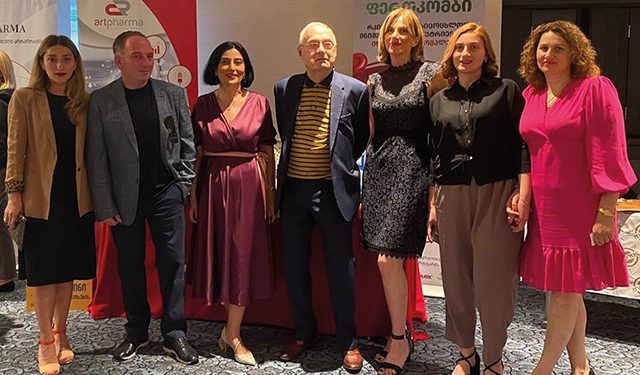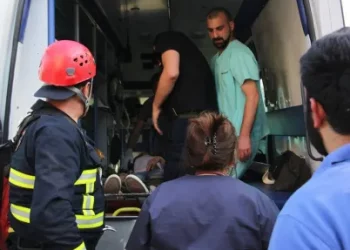No doubt all of us need a doctor’s help, but there is one particular speciality in the medicinal world which our Sakartvelo needs more than anything else to survive: Reproductology! Some might think this another tongue-in-cheek statement from me, but it’s not. Reproductology is needed in Georgia more than any manganese ore, trade with Turkey, peace with Russia, American help, European precepts on human rights and democracy, return of our annexed territories, tanks and rockets, sporting medals or the notorious rivalry within our multiparty political spectrum. And why is that? This nation has plunged into a demographic lethargy; it has to open its tightly closed eyes and energy valves as soon as possible, and start multiplying without any delay.
Daringly visualizing Georgia’s future, nothing makes sense if the saddening UN prognosis that this nation might in the near future start dwindling away is made real. There is no loftier obligation for ethnic Georgian men and women than to get married and embark on rearing new sons and daughters for the nation in big numbers. Sadly, not all those men and women are healthy enough for reproduction, though, and this is exactly where Human Reproductology comes in as the provider for Georgia’s existential necessity.
The conception and construction of the Department of Reproductology, Obstetrics and Gynecology at the Ivane Javakhishvili Tbilisi State University by Professor Archil Khomasuridze was one of the most notable and appreciable steps, purposefully undertaken by this Georgian doctor with immense professional experience under his belt. The never-tiring Khomasuridze, who has just turned 81, went even further by organizing a Medical Residency Program in the popular subject of Reproductology, giving a unique chance for young doctors to grow and learn. Both the Chair and the Program enjoy a powerful clinical basis, called the Archil Khomasuridze Institute of Reproductology, which has been up and running in Tbilisi for the last ten years. Before, for almost thirty years, Khomasuridze was at the head of the famous Zhordania Institute of Human Reproduction, having given life to thousands of infants and having granted the bliss and honor of motherhood to just as many women.
On February 11, his birthday, Professor Khomasuridze was awarded the Tbilisi State University Gold Medal for his outstanding role in the field of reproductology, and for his exceptional efforts to strengthen this particular branch of the Georgian medical school. Khomasuridze is courageously defying his age, and vigorously continues working on the development of this valuable and indispensable medical field, being internationally recognized as one of the founding fathers of modern reproductology in the world. He is sincerely proud of his God-given share in a life that serves women’s health in general, and female fertility in particular. Working under the professional motto of ‘Reproductology First & Foremost’, his medical team, with more than half a century of experience in various remedial fields and directions, does not even want to imagine that their beloved guru will someday opt to retire. It’s certainly not in his character! He will never decide to leave alone the family he has nurtured with love, care and knowledge. ‘They are all my kids and the inheritors of all that I own’, he once told me movingly with a dimmed flash of his watered eyes.
Teamwork capability, practical and theoretical synergy, synthesis of traditional and innovative style of work, external contacts and scientific depth – these are the assets that Professor Khomasuridze puts to use in his regular labor day, which covers medical fields like gynecology, including children’s and adolescents’ medical problems, endocrinology, reproductology, mammalogy, urology and sexology, saying nothing about the myriad useful services they offer to the public on a daily basis. Khomasuridze is assisted by a team of highly qualified specialists in each of these fields, elegantly and successfully headed by his right hand, the clinical director of the institute, Dr. Lali Pkhaladze.
Incidentally, the same day, February 11, a scientific conference was held, dedicated to Professor Khomasuridze, and titled ‘Reproductive Education in Georgia’. The reports and analytical theses that were heard at the conference were all on the highest level of contemporary medical developments in the field.
How many among the 195 member countries of the United Nations might afford, and would be able to offer to its society, a medical conference of this level, all prepared and executed by local scientific cadres and based on the long-accumulated national medical lore? The delighted octogenarian professor, as young as he actually looks and feels, proudly listened to the voices of his former and current students, who have definitely lived up to their great mentor’s expectations.
Blog by Nugzar B. Ruhadze













